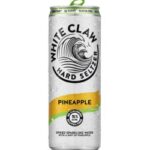Vitamin B12, also known as cobalamin, is an essential water-soluble vitamin that plays a crucial role in various bodily functions. It’s vital for nerve function, DNA synthesis, and the formation of red blood cells. Unlike other vitamins, B12 is primarily found in animal products, which can pose a challenge for vegetarians and vegans. This comprehensive guide will explore what B12 is, its benefits, deficiency symptoms, sources, and more.
Understanding Vitamin B12
Vitamin B12 is a complex molecule with a cobalt atom at its center, hence the name cobalamin. It exists in several forms, including cyanocobalamin, hydroxocobalamin, methylcobalamin, and adenosylcobalamin. These forms differ in their chemical structure and how they are utilized by the body. B12 is absorbed in the small intestine, where it binds to a protein called intrinsic factor. This complex is then absorbed into the bloodstream and transported to cells throughout the body.
Benefits of Vitamin B12
B12 offers numerous health benefits, including:
-
Nerve Function: B12 is crucial for maintaining the myelin sheath, a protective coating around nerve fibers. Deficiency can lead to nerve damage and neurological problems.
-
Red Blood Cell Formation: B12 is essential for the production of red blood cells. Deficiency can result in megaloblastic anemia, characterized by large, immature red blood cells.
-
DNA Synthesis: B12 plays a role in DNA synthesis and cell division.
-
Cognitive Function: Some studies suggest that B12 may improve cognitive function and protect against age-related cognitive decline. Research indicates that low Vitamin B12 levels can be an underestimated cause of minimal cognitive impairment and dementia (Cureus).
-
Energy Production: B12 is involved in energy production, helping convert food into usable energy. B-Vitamins generally contribute to energy, and can help combat fatigue and improve cognition (Nutrients).
-
Bone Health: B-vitamins, including B12, have been linked to bone health, but more research is needed to fully understand the relationship (Nutrients).
Symptoms of Vitamin B12 Deficiency
Vitamin B12 deficiency can manifest in various ways, and symptoms can range from mild to severe. Common symptoms include:
-
Fatigue and Weakness: Feeling tired and weak is a common early sign of B12 deficiency.
-
Megaloblastic Anemia: This type of anemia leads to fatigue, shortness of breath, and pale skin.
-
Neurological Problems: Nerve damage can cause numbness, tingling, and difficulty walking.
-
Cognitive Impairment: Memory loss, confusion, and difficulty concentrating can occur.
-
Glossitis: A sore, swollen tongue.
-
Skin Changes: Vitamin and nutritional deficiencies, including B12 deficiency, can cause skin and nail changes (Podiatry Today). Deficiencies have been linked to hyperpigmentation, vitiligo, and hair changes (American Journal of Clinical Dermatology).
-
Mood Changes: Depression and irritability can be associated with B12 deficiency. Studies have suggested Vitamin B12 supplementation can prevent onset and improve prognosis of depression (Cureus).
Causes of Vitamin B12 Deficiency
Several factors can contribute to B12 deficiency:
-
Dietary Insufficiency: Vegans and vegetarians are at higher risk due to the limited availability of B12 in plant-based foods.
-
Pernicious Anemia: This autoimmune condition impairs the body’s ability to absorb B12 due to a lack of intrinsic factor.
-
Malabsorption: Conditions like celiac disease, Crohn’s disease, and atrophic gastritis can interfere with B12 absorption.
-
Age: Older adults may have decreased stomach acid production, which can reduce B12 absorption.
-
Medications: Certain medications, such as proton pump inhibitors (PPIs) and metformin, can interfere with B12 absorption.
-
Alcohol Use: Heavy alcohol use can negatively impact nutritional status, potentially leading to B12 deficiency (UpToDate).
Food Sources of Vitamin B12
Vitamin B12 is primarily found in animal products. Excellent sources include:
-
Meat: Beef, liver, and poultry are rich in B12.
-
Fish: Salmon, tuna, and trout are good sources.
-
Dairy Products: Milk, cheese, and yogurt contain B12.
-
Eggs: Eggs are a decent source of B12.
-
Fortified Foods: Some plant-based foods, like fortified cereals and plant-based milks, are supplemented with B12.
Vitamin B12 Supplements
B12 supplements are available in various forms, including:
-
Cyanocobalamin: This is a synthetic form of B12 that is widely available and inexpensive.
-
Methylcobalamin: This is a naturally occurring form of B12 that is readily absorbed by the body.
-
Hydroxocobalamin: This form is often used in injections and is converted to active forms within the body.
-
Adenosylcobalamin: Another active form of B12.
Supplements can be taken orally, sublingually (under the tongue), or via injection. Oral vitamin B12 is comparable to intramuscular vitamin B12 for addressing deficiency (Cochrane).
Testing for Vitamin B12 Deficiency
A blood test can determine B12 levels. Doctors typically look for levels below 200 pg/mL as an indicator of deficiency. However, some experts suggest that levels between 200-350 pg/mL may indicate a borderline deficiency. It’s crucial to consult a healthcare professional for proper diagnosis and treatment. Vitamin B-12 (cobalamin) status in vegetarians can be staged using specific markers and cutoffs (American Journal of Clinical Nutrition).
Treatment for Vitamin B12 Deficiency
Treatment for B12 deficiency depends on the cause and severity of the deficiency. Options include:
-
B12 Injections: Injections are often used for severe deficiencies or when malabsorption is a concern.
-
Oral Supplements: High-dose oral supplements can be effective for mild to moderate deficiencies.
-
Dietary Changes: Increasing intake of B12-rich foods or fortified foods.
Vitamin B12 and Anemia
B12 deficiency is a common cause of anemia, specifically megaloblastic anemia and vitamin B12 deficiency anemia. These conditions occur when the body cannot produce enough healthy red blood cells due to a lack of B12. Early diagnosis and treatment are crucial to prevent complications. Heavy alcohol use has been linked to both folate and vitamin B12 deficiencies which in turn are linked to anemia.
Safety and Side Effects
Vitamin B12 is generally considered safe, even at high doses. Because it’s water-soluble, excess B12 is typically excreted in urine. However, in rare cases, very high doses of B12 have been associated with side effects. Toxicity induced by multiple high doses of vitamin B12 during pernicious anemia treatment has been reported (Clinical Toxicology).
Conclusion
Vitamin B12 is an essential nutrient that plays a critical role in nerve function, red blood cell formation, and DNA synthesis. Deficiency can lead to a range of health problems, including fatigue, neurological issues, and anemia. By understanding the benefits of B12, recognizing deficiency symptoms, and ensuring adequate intake through diet or supplementation, you can support your overall health and well-being. If you suspect you may be deficient in B12, consult with a healthcare professional for proper evaluation and treatment.
References
- University of Florida Institute of Food and Agricultural Sciences (IFAS) Extension: “Facts About Vitamin B12.”
- University of Arizona’s Arizona Telemedicine Program: “Vitamin B12 Deficiency: Pernicious Anemia.”
- Harvard Health Publications: “Vitamin B12 Deficiency: Vegetarians, elderly may not get enough vitamin B12, says the Harvard Health Letter.”
- National Heart, Lung, and Blood Institute: “Pernicious Anemia,” “Vitamin B12–Deficiency Anemia.”
- Oregon State University’s Linus Pauling Institute: “Vitamin B12.”
- Kaiser Permanente: “Vitamin B12 Deficiency Anemia.”
- National Institutes of Health Office of Dietary Supplements: “Vitamin B12 Fact Sheet for Health Professionals,” “Vitamin B12 Fact Sheet for Consumers.”
- MedlinePlus: “Anemia – B12 deficiency.”
- UpToDate: “Nutritional status in patients with sustained heavy alcohol use.”
- Annual Review of Nutrition: “New insights into erythropoiesis: the roles of folate, vitamin B12, and iron.”
- Nutrients: “B-Vitamins and Bone Health–A Review of the Current Evidence,” “Vitamins and Minerals for Energy, Fatigue and Cognition: A Narrative Review of the Biochemical and Clinical Evidence.”
- Annals of Medicine and Surgery: “Optic neuropathy as a presenting feature of vitamin B-12 deficiency: A systematic review of literature and a case report.”
- Cureus: “Vitamin B12 Supplementation: Preventing Onset and Improving Prognosis of Depression,” “Low Vitamin B12 Levels: An Underestimated Cause Of Minimal Cognitive Impairment And Dementia,” “A Study on Vitamin B12 Levels in Hypothyroid Patients Presenting to a Tertiary Care Teaching Hospital.”
- American Journal of Clinical Dermatology: “A review of vitamin B12 in dermatology.”
- Dermatology and Therapy: “The Role of Vitamins and Minerals in Hair Loss: A Review.”
- Podiatry Today: “When Vitamin And Nutritional Deficiencies Cause Skin And Nail Changes.”
- Dermatologist: “Nails and Vitamin Supplementation.”
- NHS: “Causes – Vitamin B12 or folate deficiency anaemia,” “Treatment – Vitamin B12 or folate deficiency anaemia.”
- Cleveland Clinic: “Vitamin B12 Injection,” “Vitamin B12 Injections: What They Can and Can’t Do.”
- Cochrane: “Vitamin B12 supplementation for women during pregnancy,” “Oral vitamin B12 versus intramuscular vitamin B12 for vitamin B12 deficiency.”
- Clinical Toxicology: “Toxicity induced by multiple high doses of vitamin B12 during pernicious anemia treatment: a case report.”
- JAMA Network Open: “Association of Plasma Concentration of Vitamin B12 With All-Cause Mortality in the General Population in the Netherlands.”
- American Journal of Clinical Nutrition: “Staging vitamin B−12 (cobalamin) status in vegetarians.”

